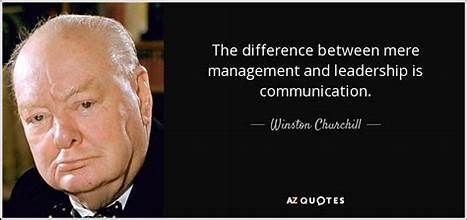The difference between mere management and leadership is communication. – Winston Churchill
I am laughing out loud as I am writing this because as much as this week’s blog is pointed at college coaches, I am really pointing the finger clearly at the version of me who was a college coach for a long time. I’ll get to why I am laughing toward the end.
There are 5 actions that most college coaches simply do not handle well. Often, it is not due to a lack of effort or apathy. There is only so much time in a day. It is also important to remember that most people struggle any time they have to communicate with someone they don’t know or aren’t sure they want to know…especially if it requires small talk with a teenager or a helicopter parent. College coaches are no different.
What are the Top 5 College Coach Communication Fails?
- Checking their email on a consistent basis (at least once per day)
- Responding to emails in a timely manner (within 24-48 hours)
- Checking their voice mail on a consistent basis (at least once per day)
- Returning phone calls in a timely manner (within 24-48 hours)
- Making time to call recruits
Now, I am sure this may rub some of my coaching brethren the wrong way, but I would imagine 95% of the college coaches reading this will humbly nod their head and say “Yep, that’s about right.”
The purpose of this blog is not for me to express vitriol to college coaches. It is actually just the opposite.
I had 3 conversations over the past week with 3 different NCAA Division I coaches. In all 3 conversations, the topic of the glut of phone calls and emails they get each week from prospects popped up as a pain point for each of them. On average, most D1 coaches will get around 30 emails or phone calls from prospects/recruits EVERY day. I was laughing above because it is not humanly possible to respond to that many emails and calls each day and do your job and spend any time with your family. Sometimes we ask too much of college coaches, and sometimes we just need to remember that they are people too.
As I stated in my May 8th blog, I wish college coaches had a better plan and strategy for handling the magnitude of all of this communication, but most do not and will not. They will simply do the best they can and hope they don’t hurt too many kids’ feelings.
With that said, it is important that you focus on solutions to that inevitable obstacle. Below is my advice to consider when emailing and calling coaches…because you all should be emailing and calling coaches no matter what the numbers say.
- For every one D1 program you call or email, you should call AND email some combination of five D2s, D3s, NAIAs and JC programs. D1 coaches will be the slowest to respond and the most likely never to respond. Don’t wait to the 11th hour of your recruitment to talk to coaches at other divisions. Build relationships with coaches at as many levels as you can as early as you can. D1 coaches might get 30 calls/emails a day from recruits. Lower level coaches might get that in a month!
- Make sure your emails and voice mails are dynamic, unique and brief. Get to the heart of what you want the coaches to know and ask for a response to evaluate you instead of a response to recruit you.
- The higher the division (D1 being the highest), the more you need to consider 1-2 summer camps on college campuses where you are interested in that school and program and 1-2 regional or national showcase events where dozens of coaches will be in attendance in one setting. D1 coaches want to see you compete where they are going to be live. If you are not playing high level travel or club sports, these events may be your best opportunity to showcase your abilities to lots of coaches. It also might be an eye-opener for you to realize you are not as good as the kids going D1.
- Be realistic. Every kid hopes, wishes and thinks they can play D1. In reality, less than 1% of all high school athletes will get a sniff from the D1 level. If D1 coaches are not reaching out and not responding to your efforts, there is a very good chance that you are simply not good enough for what they are looking for.
- D1 coaches are looking for kids who have the ability to go pro or play in the Olympics someday. D2 coaches are looking for kids who can play D1. D3 coaches are looking for kids who can play D2…and so on. For the coaches you are inviting to look at you, do you have an exceptional ability, skill, size, etc. that will make them go “Wow”? If not, you need to put the majority of your attention on lower level schools.
If you love your sport and truly want to play at the next level, it is important that you consistently tell yourself that the division and the name on the front of your college jersey doesn’t matter. The key is finding a place that fits your academic, social, geographical and financial needs AND where you can play.
I’ll finish with a piece of advice I heard this week during an interview I had with one of the top coaches on the West Coast. I won’t soon forget it because I wish someone would have told it to me when I was 17…
Go where you’re celebrated, not tolerated.
Enjoying these blogs? Want to schedule a free 30-minute strategy session with Coach Rogers? You can do so here: https://calendly.com/mrogers_significantcoaching/assessment-w-matt-rogers
Interested in Coach Rogers’ Book on College Recruiting? You can find it here: https://bit.ly/Matt-Rogers-Significant-Recruiting-Amazon






